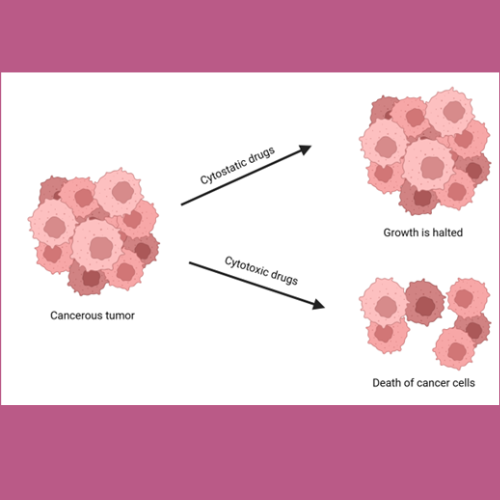Health
Researchers Make Strides in Breast and Liver Cancer Treatments

Significant advancements in the understanding and treatment of breast and liver cancers have emerged from the Cancer Center at Illinois (CCIL). Researchers are developing innovative approaches that could enhance early detection, improve treatment options, and deepen insights into how these cancers progress. As awareness grows this October, these findings offer renewed hope for patients and their families.
Breakthroughs in Breast Cancer Research
CCIL scientists recently reported a promising discovery in breast cancer treatment involving a small molecule known as ErSO-TFPy. In preclinical studies, a single dose of this drug significantly reduced the size of large tumors in mice. If successfully translated to human patients, this breakthrough could revolutionize breast cancer therapies.
In another area of research, CCIL is investigating how calcifications form in breast tissue. Current findings suggest new diagnostic criteria that could lead to fewer unnecessary biopsies. According to CCIL member Bruce Fouke, the goal is to enhance the precision of mammograms, allowing for better differentiation between benign conditions and cancer.
The challenge of metastatic breast cancer, where cancer cells spread to other parts of the body, is also being addressed. Supported by the CCIL’s BEAT Cancer Research Initiative, researcher Ashok Samuel is examining the mechanisms behind cancer cell migration. He noted, “Our study is uncovering a complex molecular ‘roadmap’ that cells follow as they become more mobile.” This understanding may enable doctors to tailor treatment dosages effectively, minimizing harmful side effects.
Samuel emphasized the importance of this research, stating, “Breast cancer affects so many lives as it is one of the most common cancers worldwide.” He highlighted that breast cancer is not a singular disease, making personalized treatment approaches essential.
Advancements in Liver Cancer Treatment
In parallel, CCIL is making strides in liver cancer research, particularly focusing on hepatocellular carcinoma (HCC), the most common form of liver cancer. A study led by Claudius Conrad, in collaboration with the Carle Illinois College of Medicine, explores early-onset liver cancer and its treatment responses. The research aims to establish more effective screening and treatment strategies for younger patients.
Conrad stated, “Surgery remains the most powerful tool we have for curing HCC.” The findings indicate that early intervention in younger patients, who generally have healthier livers, can lead to successful outcomes.
The CCIL is also working with clinicians from OSF Healthcare to improve diagnostic procedures. Rohit Bhargava, director of CCIL, explained that their collaboration focuses on integrating artificial intelligence with digital pathology to streamline liver cancer diagnoses. “Our study integrates a mid-infrared chemical imaging system with artificial intelligence to discover the distinct chemical fingerprints of tissues,” he said. This advancement promises earlier and more accurate detection of liver cancers, ultimately leading to better patient outcomes.
As these promising developments unfold, they reflect the ongoing commitment of CCIL researchers to combat cancer through innovative science and collaborative efforts. The work being done at the center not only aims to improve treatment options but also seeks to provide hope to those affected by these diseases.
-

 Science2 weeks ago
Science2 weeks agoIROS 2025 to Showcase Cutting-Edge Robotics Innovations in China
-

 Politics2 weeks ago
Politics2 weeks agoJudge Considers Dismissal of Chelsea Housing Case Citing AI Flaws
-

 World2 weeks ago
World2 weeks agoBravo Company Veterans Honored with Bronze Medals After 56 Years
-

 Lifestyle2 weeks ago
Lifestyle2 weeks agoStone Island’s Logo Worn by Extremists Sparks Brand Dilemma
-

 Top Stories2 weeks ago
Top Stories2 weeks agoIndonesia Suspends 27,000 Bank Accounts in Online Gambling Crackdown
-

 Health2 weeks ago
Health2 weeks agoStartup Liberate Bio Secures $31 Million for Next-Gen Therapies
-

 Sports2 weeks ago
Sports2 weeks agoMel Kiper Jr. Reveals Top 25 Prospects for 2026 NFL Draft
-

 Health2 weeks ago
Health2 weeks agoTop Hyaluronic Acid Serums for Radiant Skin in 2025
-

 World2 weeks ago
World2 weeks agoHoneywell Predicts Record Demand for Business Jets Over Next Decade
-

 Sports2 weeks ago
Sports2 weeks agoYamamoto’s Mastery Leads Dodgers to 5-1 Victory in NLCS Game 2
-

 Politics2 weeks ago
Politics2 weeks agoNew Jersey Voters Urged to Register Ahead of November Election
-

 Lifestyle2 weeks ago
Lifestyle2 weeks agoMary Morgan Jackson Crowned Little Miss National Peanut Festival 2025









